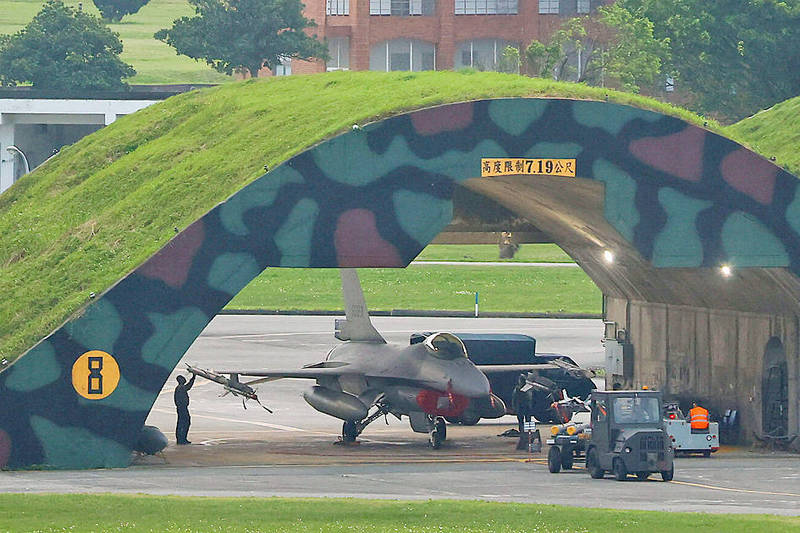《TAIPEI TIMES》 Defense partnership changes proposed

A technician works on an F-16 jet at an air force base in Hualien on April 8. Photo: Anne Wang, Reuters
COOPERATION KEY: DPP lawmakers said their proposed amendments were aimed at ensuring that Taiwan can make use of tech transfer opportunities on offer from the US
By Chen Chen-yu and Jonathan Chin / Staff reporter, with staff writer
Democratic Progressive Party (DPP) lawmakers have proposed draft amendments to Article 22 of the National Defense Act (國防法), which would require the government to facilitate technology transfers during international defense industry cooperation projects.
The legislature’s Organic Laws and Statutes Bureau in July recommended that Article 22 of the act be amended to boost the productivity of Taiwan-US arms production projects.
Legislators Chiu Chih-wei (邱志偉), Chen Ting-fei (陳亭妃) and Chen Su-yueh (陳素月) on Friday sponsored a draft amendment proposing that technology transfers be realized in international defense industry partnerships, in addition to acquisition activities as is currently stipulated.
The government should be prepared to acquire asymmetric warfare capabilities via defense industry projects with foreign partners, export Taiwanese arms and procure arms from the US, they said in a statement of purpose for the draft amendments.
Citing US Department of State principal deputy spokesperson Vedant Patel, the lawmakers said that Washington has expressed a willingness to speedily export defense articles and services to Taipei in accordance with the Taiwan Relations Act.
Taipei should make use of technology transfer opportunities being presented by the US in the form of distributed manufacturing and localized maintenance arrangements that integrate Taiwan’s defense industry with global supply chains, they said.
Separately, legislators Lai Hui-yuan (賴惠員) and Tsai Yi-yu (蔡易餘) sponsored a largely identical amendment to the act.
Technology transfers are critical if the nation is to succeed in developing a self-sufficient defense industry, they said in the draft amendment’s statement of intent.
This means the government should facilitate technology transfers when making arrangements with foreign nations to cooperate in defense technology research and development, manufacturing and support services, they said.
In anticipation of the amendments, the Ministry of National Defense is developing strategies for defense industry cooperation and investment in collaboration with the Ministry of Economic Affairs, according to a document defense officials submitted to lawmakers.
Separately, President Tsai Ing-wen (蔡英文) yesterday said the launch of Taiwan’s first domestically developed submarine, the Hai Kun (海鯤), or “Narwhal,” assured allies that the nation has the resolve to defend itself.
The Hai Kun was unveiled at a ceremony in Kaohsiung on Sept. 28.
Taiwan’s national defense achievements are key to gaining credibility and assuring allies that it is worth supporting, she said.
The submarine was the first project the navy brought to her attention after she assumed office, and its launch marks the completion of an important mission entrusted to her office, Tsaid said, adding that it would not have been possible without the support of ordinary Taiwanese and lawmakers.
新聞來源:TAIPEI TIMES













